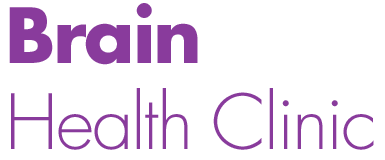
In a prior article, we discussed the benefits of looking at health and wellness from the perspective of functional medicine. A key area of science that contributes to the study of functional medicine is the field of genomics. What is genomics and how does it contribute to what we do at the Brain Health Clinic?
Are Genetics and Genomics Similar?
The study of genetics preceded studies in genomics. Genetics concerns itself with the study of genes and how they pass on traits that we inherit. Genomics then looks at those genes to determine how they interact with each other and with signals the body receives from itself and the environment.
It might be said that genetics can tell you which gene is responsible for which body trait, characteristic, feature, or disorder. Genomics studies how those genes interact with each other in response to cues received from the environment or from other genes. It’s for this reason that genomics is a relatively newer field of study, because for decades scientists were not completely aware of how certain genes were turned “on” or “off.”
For example, we all have genes that provide the commands for growth. As a result, we become taller and broader as we proceed from youth to adulthood. What controls these growth genes? What signals them to produce the proteins that lead to the body’s growth, and then to stop producing those proteins, halting growth?
It turns out that for every gene that controls a characteristic of our body (a protein-coding gene), there is at least one other gene that is responsible for turning it “on” and “off” (a regulatory non-coding gene). For those of us who are older and can remember our high school Biology class and the study of genetics, our teachers told us that we only needed “1% of our DNA and the rest of it is junk.” As the genomes of all species of living things became better understood, it became apparent that this “junk DNA” was actually vital and important. The non-coding genes that scientists previously thought had little to no purpose were actually the “light switch” for all the protein-coding genes. Just as a lamp cannot turn itself on and off without someone “flipping the switch,” so too the genes that control every aspect of our body required another gene to set them to work, or stop them from working.
How Are We Affected By Genomics?
The National Human Genome Research Institute explains the importance of genomic studies this way:
“Genomics is helping researchers discover why some people get sick from certain infections, environmental factors, and behaviors, while others do not. For example, there are some people who exercise their whole lives, eat a healthy diet, have regular medical checkups, and die of a heart attack at age 40. There are also people who smoke, never exercise, eat unhealthy foods and live to be 100. Genomics may hold the key to understanding these differences.” – LumenLearning.com
Using completed studies that relate to brain function and emotional well-being, the Brain Health Clinic employs genomics via functional medicine. We help you consider the patterns of thought, behaviors, environmental factors, and dietary components that may be affecting your health. Our goal is to help you experience maximum wellness in conjunction with the assistance provided by your medical professional.
In another article, we will consider the important conjunction between the environment and your genetic code, the primary focus for the field of epigenetics.
